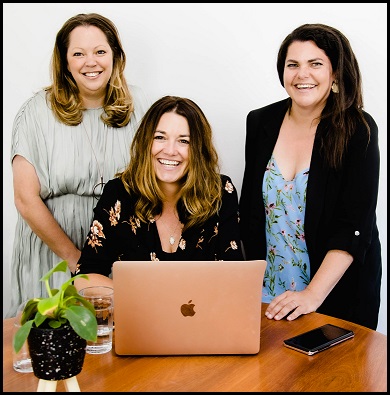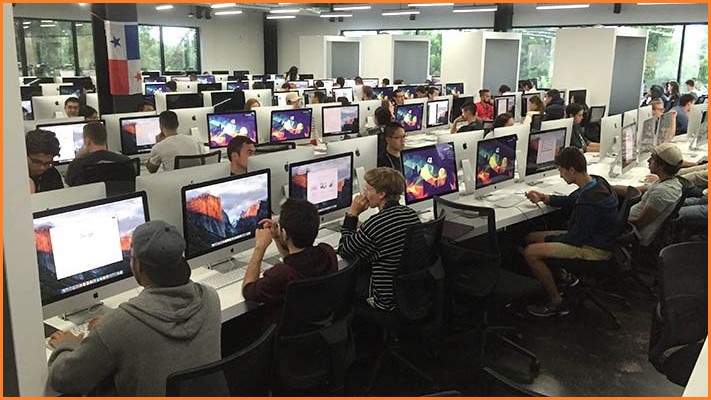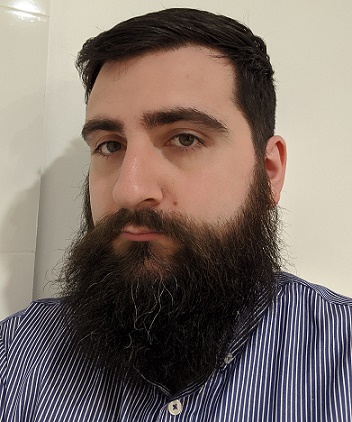Not-for-profit programming school '42' is set to open in Adelaide in May as the first Australian campus to provide tuition-free coding in a self-driven and peer-dependent environment.
The initiative, which is backed by funding from the SA Government, SA business LoftusIT and multiple hiring partners such as Lockheed Martin and FLEET Technologies, will bring computer skills into industries that sorely need them.
The first intake of students will have 24/7 access to the 42 Adelaide campus in the CBD and will have two floors totalling 1,600 square meters of space; collaboration and relaxation spaces; and 150 iMacs to help facilitate their learning.
CEO of Kik Innovation and leader of 42 Adelaide Louise Nobes was excited to see the program moving.
“We’re close to 300 applications since the beginning of the year – we’re stoked,” she said.
Students at 42 are in control of their learning and can study from as much as 40 hours per week to 20-hours part time.
They will learn to code in a foundational skills course that awards an IT diploma through the RTO Academy IT, a paid six-month internship with an industry partner, and a chance to specialise in a field such as AI, cyber security, and entrepreneurship.
The school has no lecturers or tutors – students must do their own research and pool their knowledge together.

[L to R]: 42 leaders Mel Stirling, COO; Jazz Stone, Head of Partnerships; and Louise Nobes, CEO.
“Fifty per cent of the students on average haven’t coded before – when they open their first project they’ll think ‘oh gosh’ and likely Google it,” Nobes said.
“The school is not competitive – it’s not like at a school when there’s only so many ‘A’s you can get in class.
“You also evaluate your peers in a randomised allocation – there is that, and the computer answers too.”
‘42’, a name derived from the book The Hitchhiker's Guide to the Galaxy, was started by French telecommunications billionaire Xavier Niel in 2013 as a free IT education alternative for people who face financial barriers.
The free education is kept afloat by a mix of government support and sponsorship by the private sector.
“Companies have been really attracted to 42 because they’re getting the best talent – it’s a fair transaction,” Nobles said.
She started Kik Innovation to help youth overcome barriers to find employment and saw the potential 42 had to get young people finding work and starting their own businesses.
“When I found 42 in France I emailed them that night,” Nobles said.
The organisation managed to not only get approval from 42 but also secured state government funding.
“We were backed by the SA Government – they supported us with funding to our company to buy the licence,” she said, which took one year to secure.
Other sources of startup funding came from JobTrainer and LoftusIT, Nobles said, with their contributions helping secure 140 jobs and training pathways for participants aged between 16 and 24.
While the funding prioritises opportunities for youth, Nobles encourages prospecting students of all ages apply.
“The 42 brand does not age-discriminate - it’s for everyone.”










